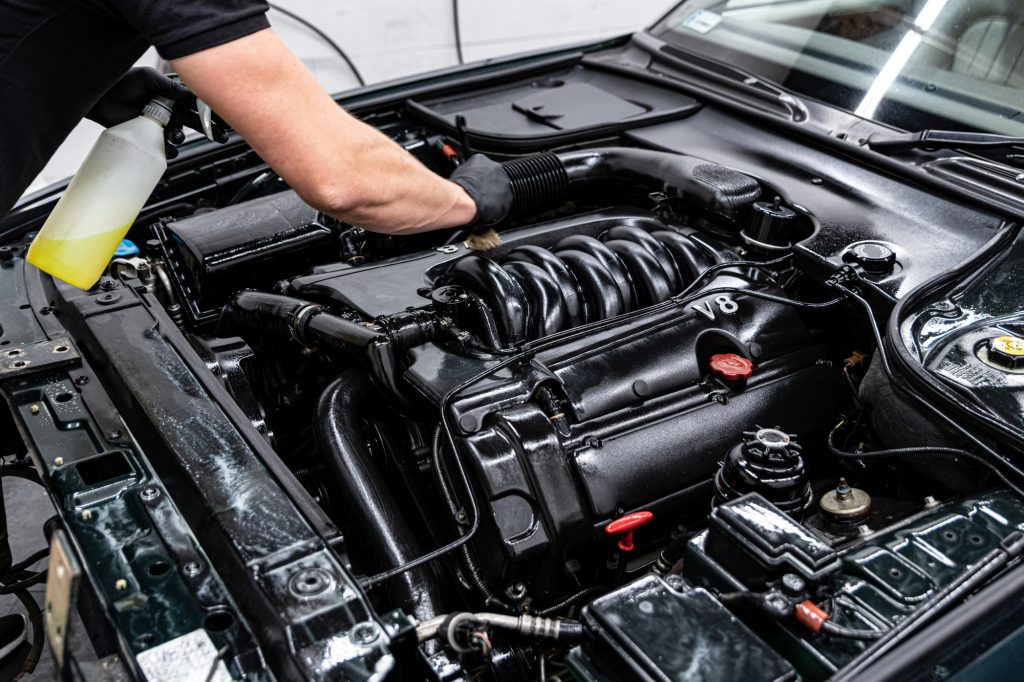Cleaning your car’s engine is an essential task to maintain its performance and appearance. However, it’s easy to make mistakes during the process that can lead to serious damage. Many drivers overlook critical details, such as using the wrong products, damaging sensitive components, or failing to protect vital parts. Understanding the proper techniques and avoiding common errors can help ensure the safety and longevity of your engine. To help you steer clear of costly mistakes, here are 15 deadly engine cleaning errors you need to avoid at all costs.
Using Water Instead of a Cleaner
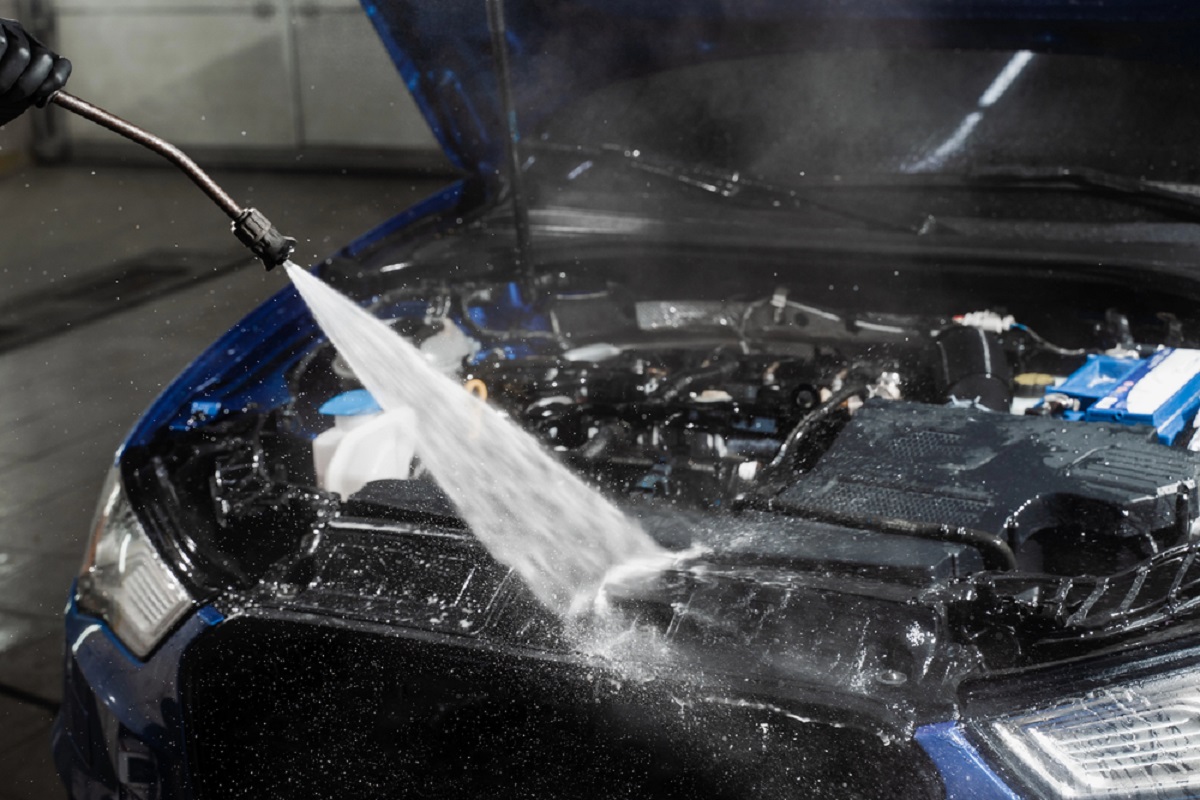
Water may seem like an easy solution for cleaning an engine, but it can do more harm than good. Spraying water directly on your engine can damage delicate components like sensors, electrical systems, and wires. Using a specialized engine cleaner that is designed for the job will provide better results without risking water damage.
Cleaning Without Cooling Down the Engine
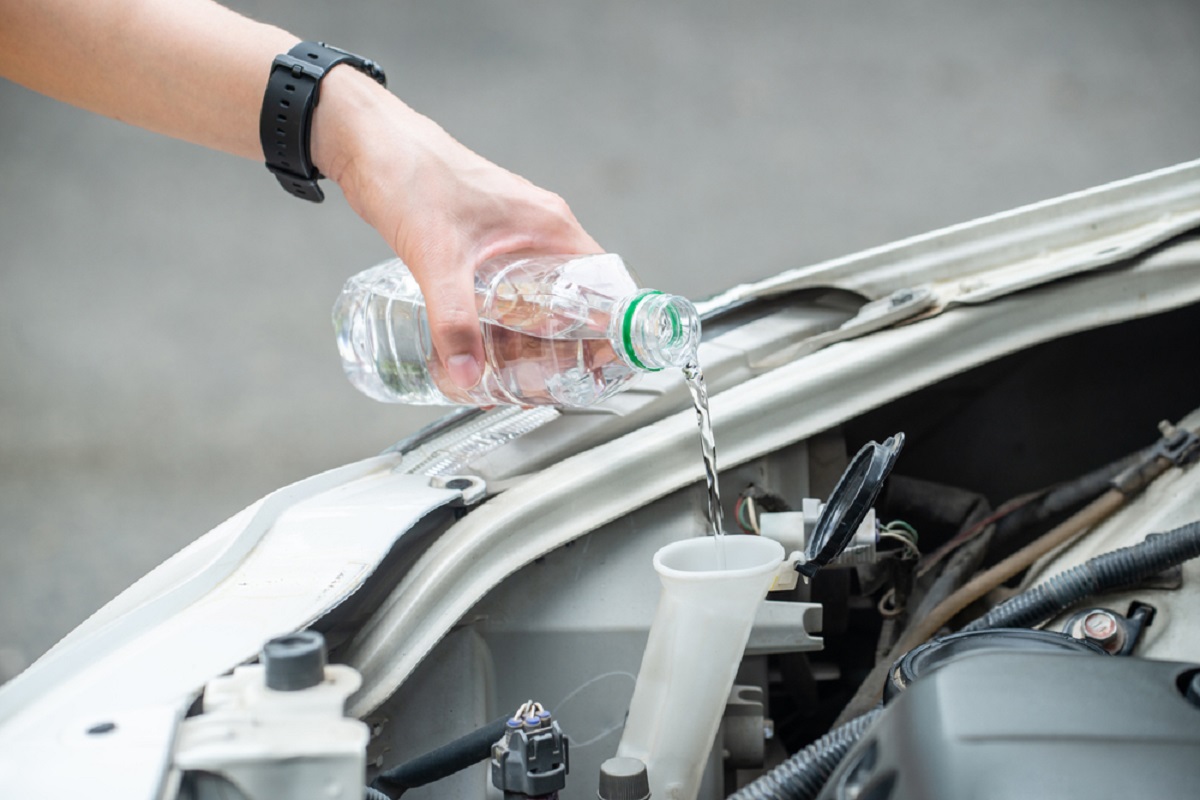
Attempting to clean your engine while it’s still hot is a big mistake. The heat can cause cleaning products to evaporate too quickly, leading to streaks or residue on the engine. Additionally, spraying cold water or cleaning solution on a hot engine can cause cracking due to sudden temperature changes.
Ignoring Protective Measures for Electrical Parts
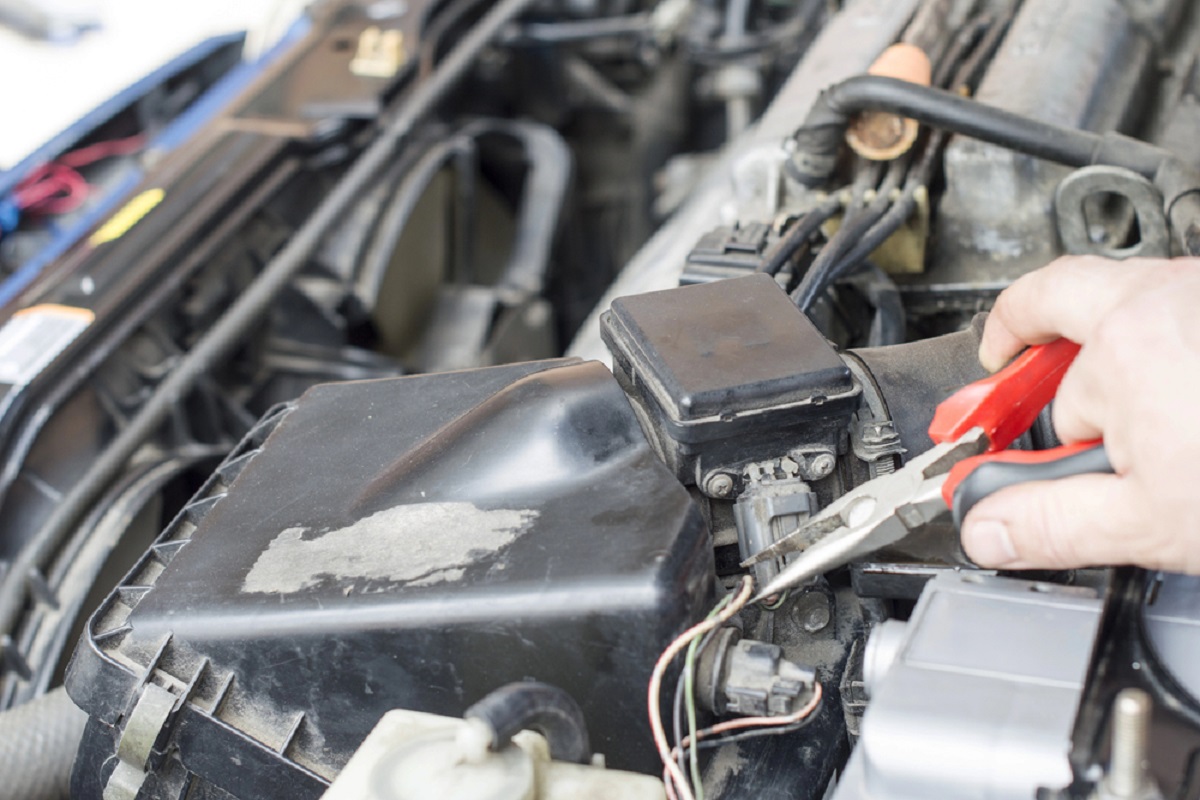
Your engine is packed with sensitive electrical components that can be easily damaged by cleaning chemicals. It’s essential to cover areas like the alternator, battery, and exposed wiring with plastic bags or aluminum foil before cleaning. Neglecting to protect these parts can result in corrosion or short-circuiting, which could lead to expensive repairs.
Using Harsh Chemicals
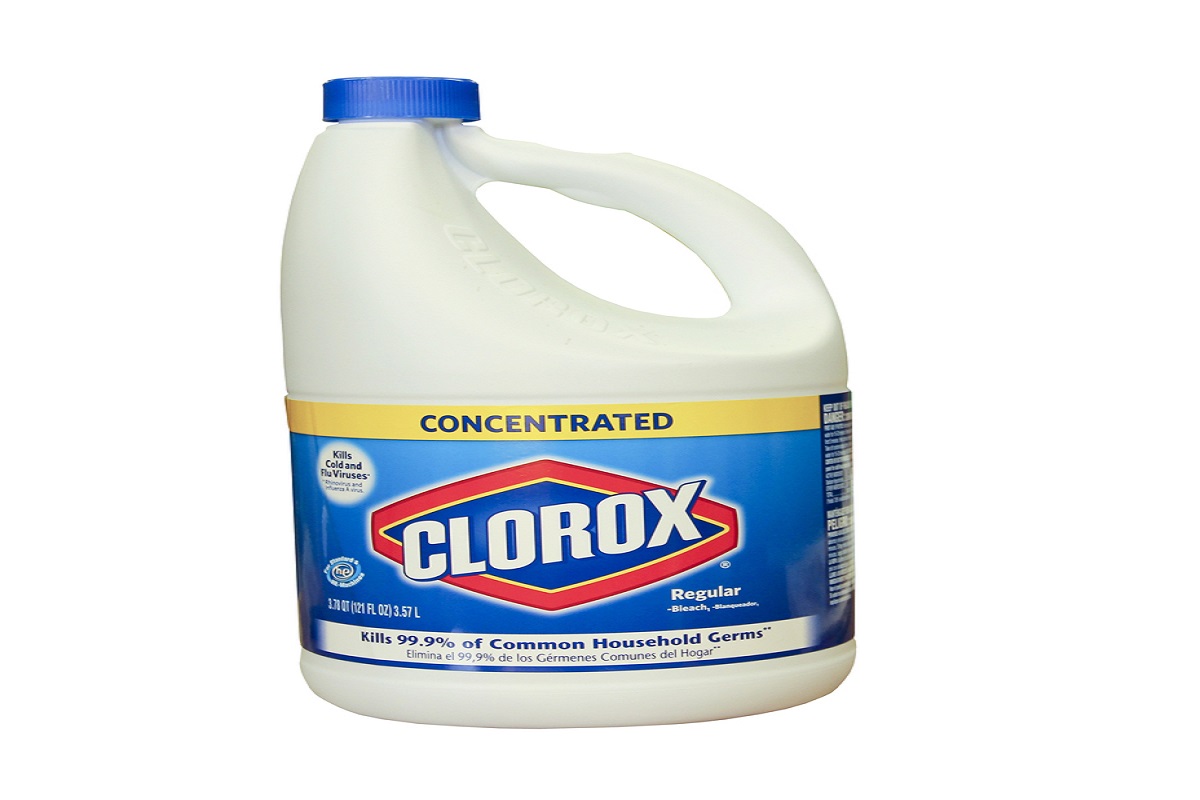
Some cleaning products contain harsh chemicals that can be too aggressive for your engine. These chemicals can strip away paint, degrade rubber seals, and cause long-term damage to the engine’s components. Opt for mild, biodegradable cleaners that are specifically formulated for engines to avoid any potential issues.
Related: 12 Cheap Electric Cars That Won’t Leave You Stranded
Using a High-Pressure Washer
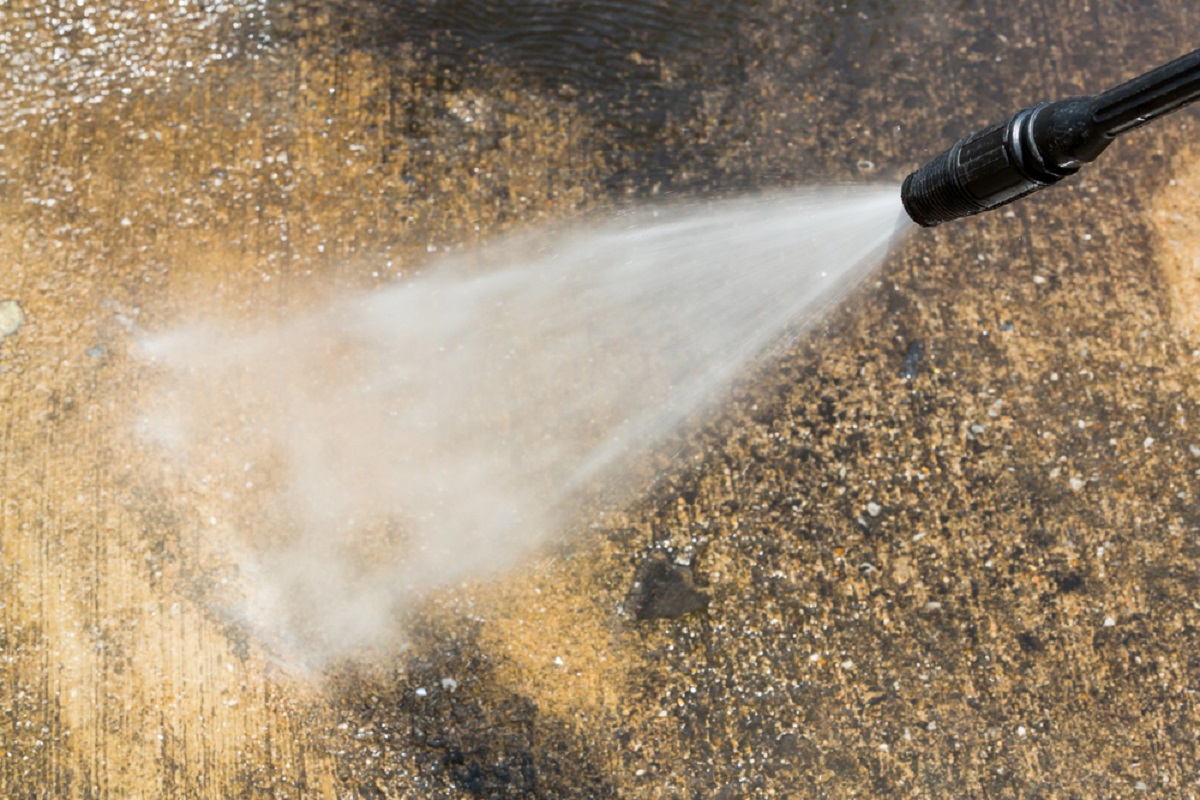
While it might seem like a quick and effective way to clean your engine, using a high-pressure washer can be incredibly risky. The intense force of the water can force dirt and grime into sensitive parts, causing irreversible damage. Stick to a lower pressure setting or use a gentle spray to avoid this mistake.
Related: Mechanic-Approved! 12 Expert Answers to Your Car Problems
Not Disconnecting the Battery
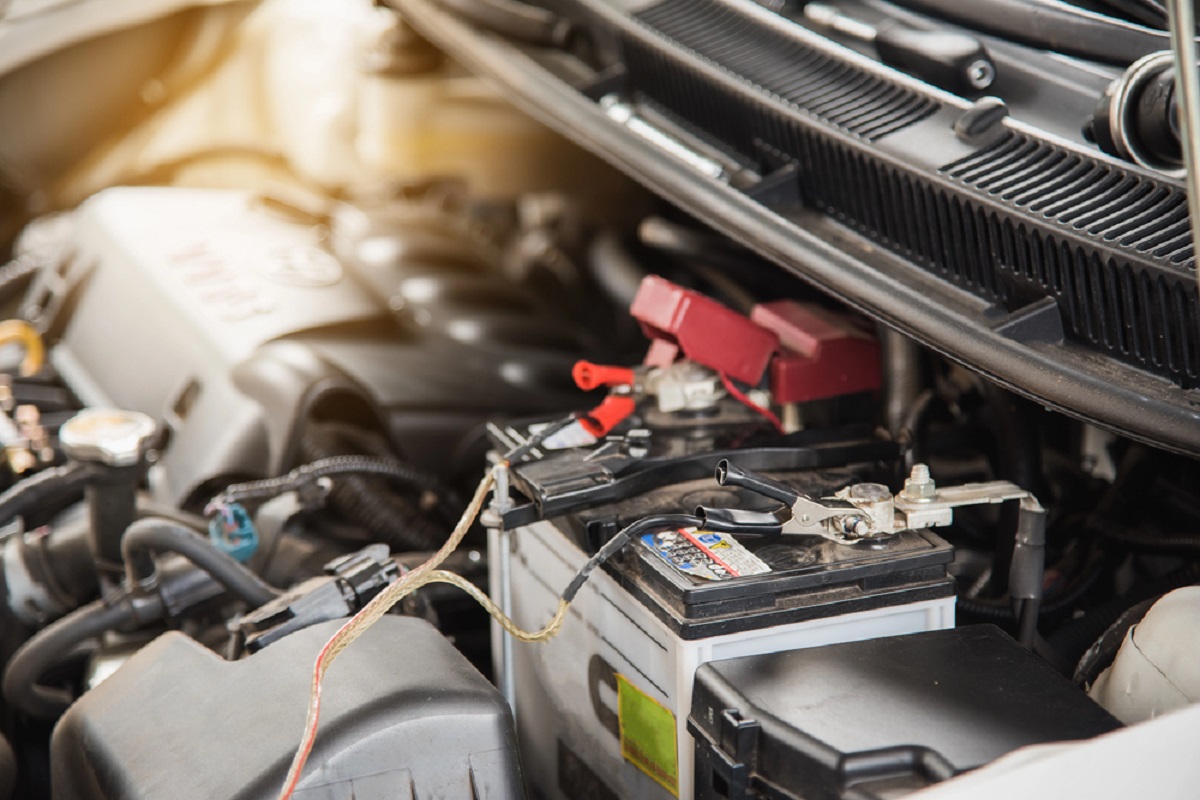
Failing to disconnect your battery before cleaning your engine can lead to accidental electrical shocks or short circuits. It’s important to disconnect both the positive and negative terminals to ensure that your engine is completely safe to clean. This precautionary step can prevent damage to the electrical components during the cleaning process.
Related: Is Your Car in Trouble? 15 Warning Signs and Fixes
Over-Spraying Cleaner
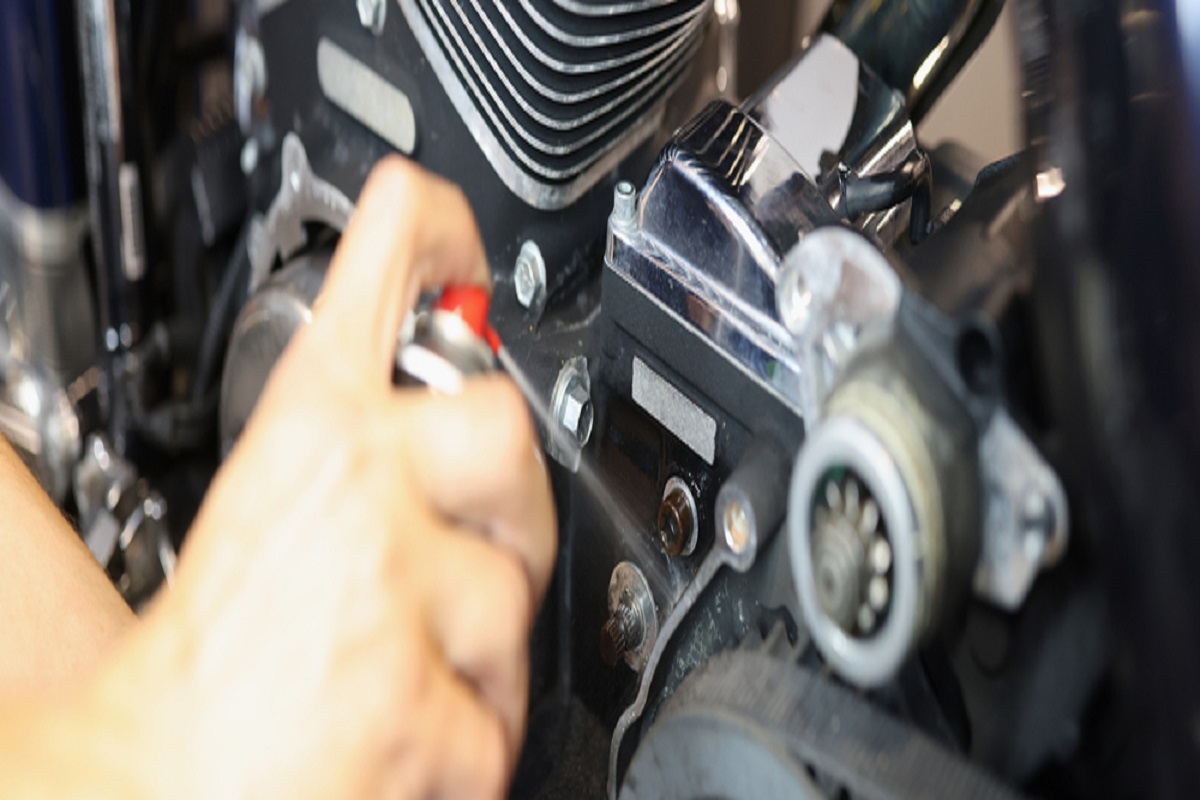
Using too much cleaner can create excess runoff that may drip onto delicate engine parts. Excess cleaner can cause electrical components to become saturated, leading to malfunctioning sensors or corrosion. Always follow the instructions on the product and apply cleaner sparingly to prevent over-saturation.
Related: New or Used? 15 Crucial Car Buying FAQs Uncovered!
Skipping the Degreasing Step
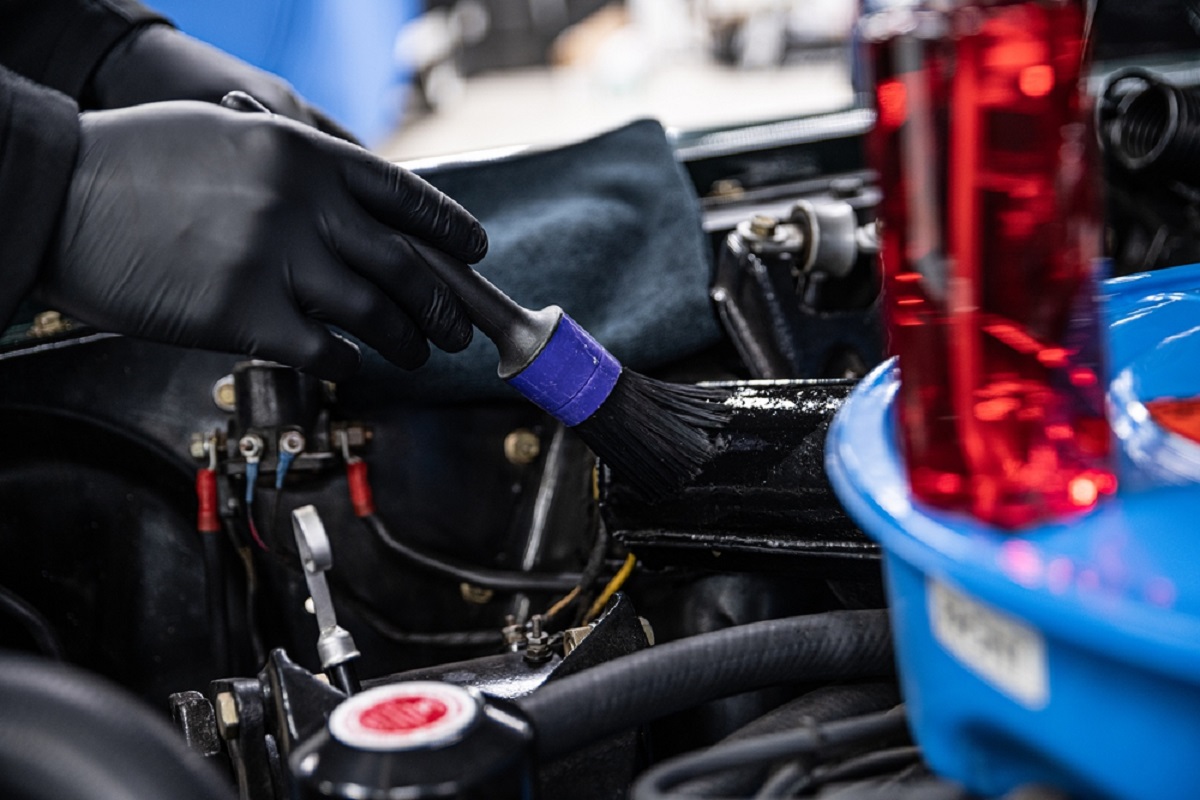
If your engine is heavily soiled with grease, it’s important to use a degreaser before attempting a more thorough clean. Neglecting this step can make it difficult to remove all the dirt and grime, leading to a less effective cleaning. A degreaser helps break down grease and oils, allowing for a smoother cleaning process.
Related: Buying Your First Car? Read These 15 FAQs Before You Sign
Using the Wrong Type of Brush
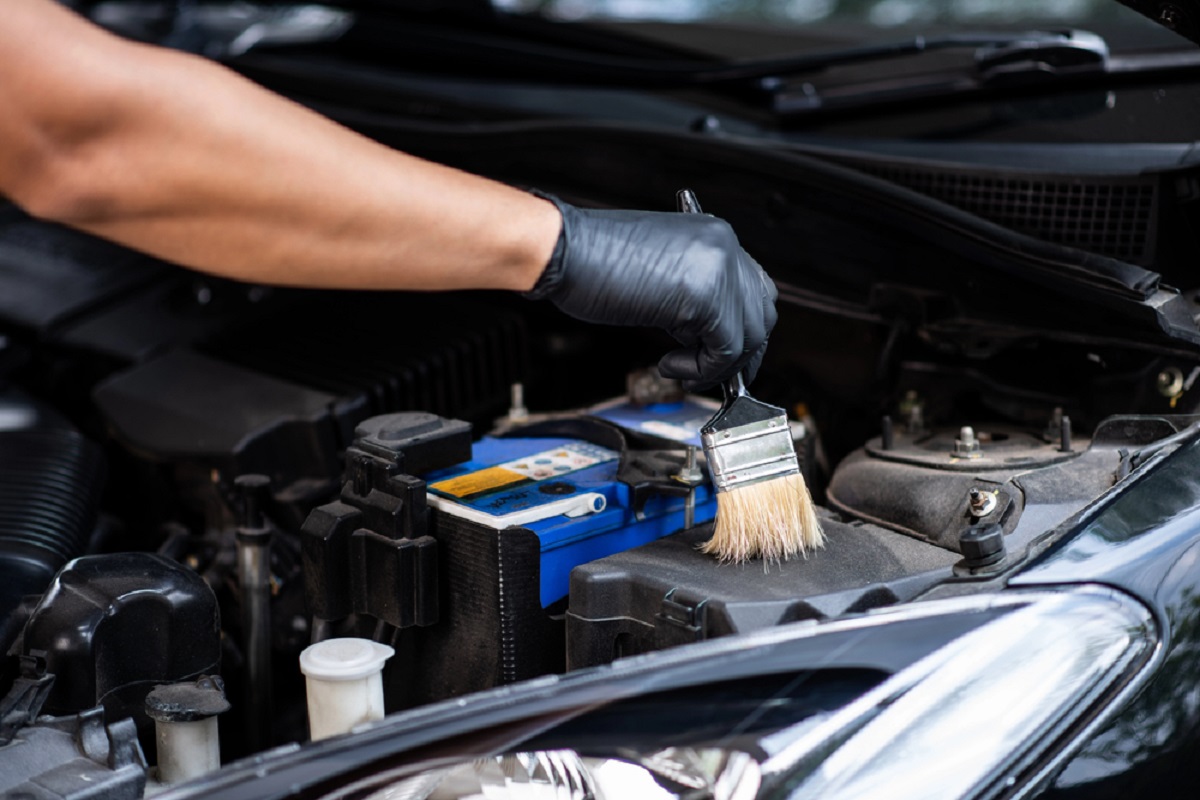
Using a brush that is too stiff or too abrasive can scratch and damage delicate surfaces in your engine. Instead, opt for a soft-bristled brush designed for engine cleaning, which will gently lift dirt without causing harm. This will help preserve the integrity of your engine’s components and finish.
Related: 13 Reasons Why Compact SUVs Still a Good Choice for City Living
Not Protecting the Engine’s Sensitive Components
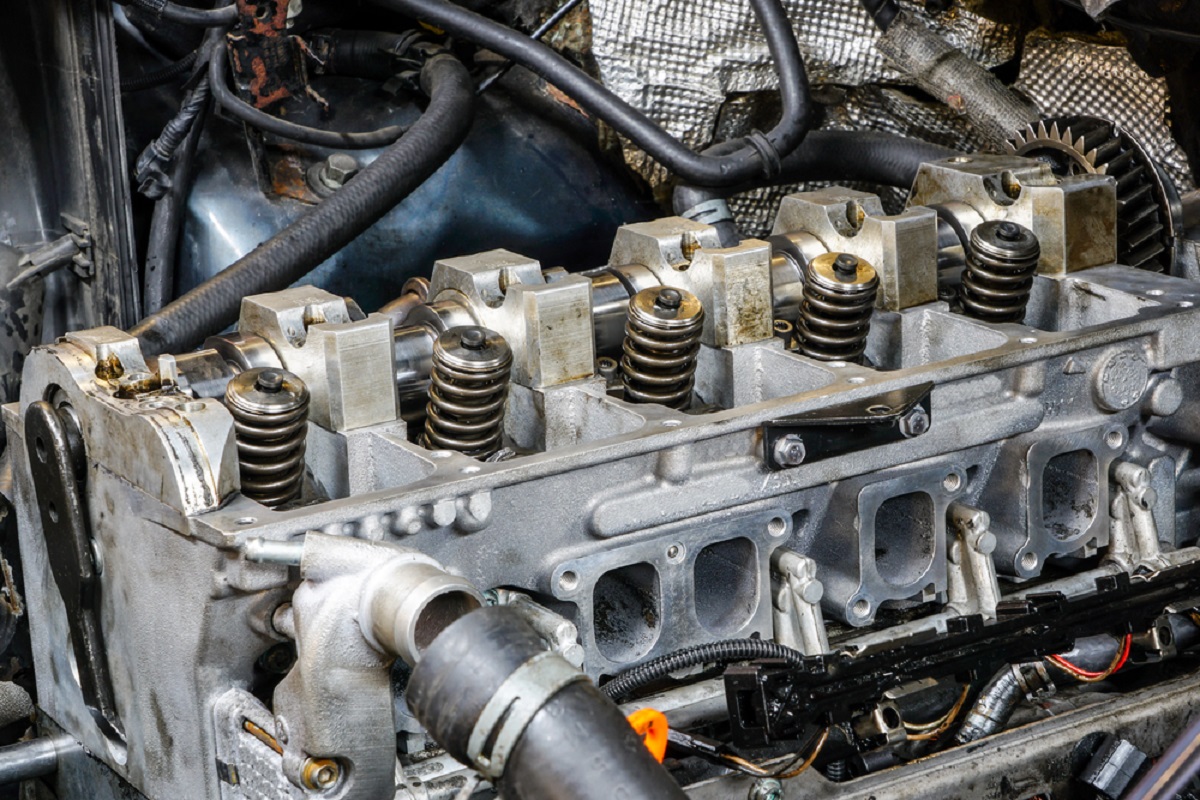
Some parts of your engine, like the intake, distributor, or spark plugs, are especially sensitive to water and cleaning products. Neglecting to protect these components can result in misfires or poor engine performance. Always take care to cover or shield vulnerable areas to avoid any potential damage.
Related: Top 12 Car Technologies That Will Be Standard in Every Vehicle by 2030
Cleaning Without Proper Ventilation
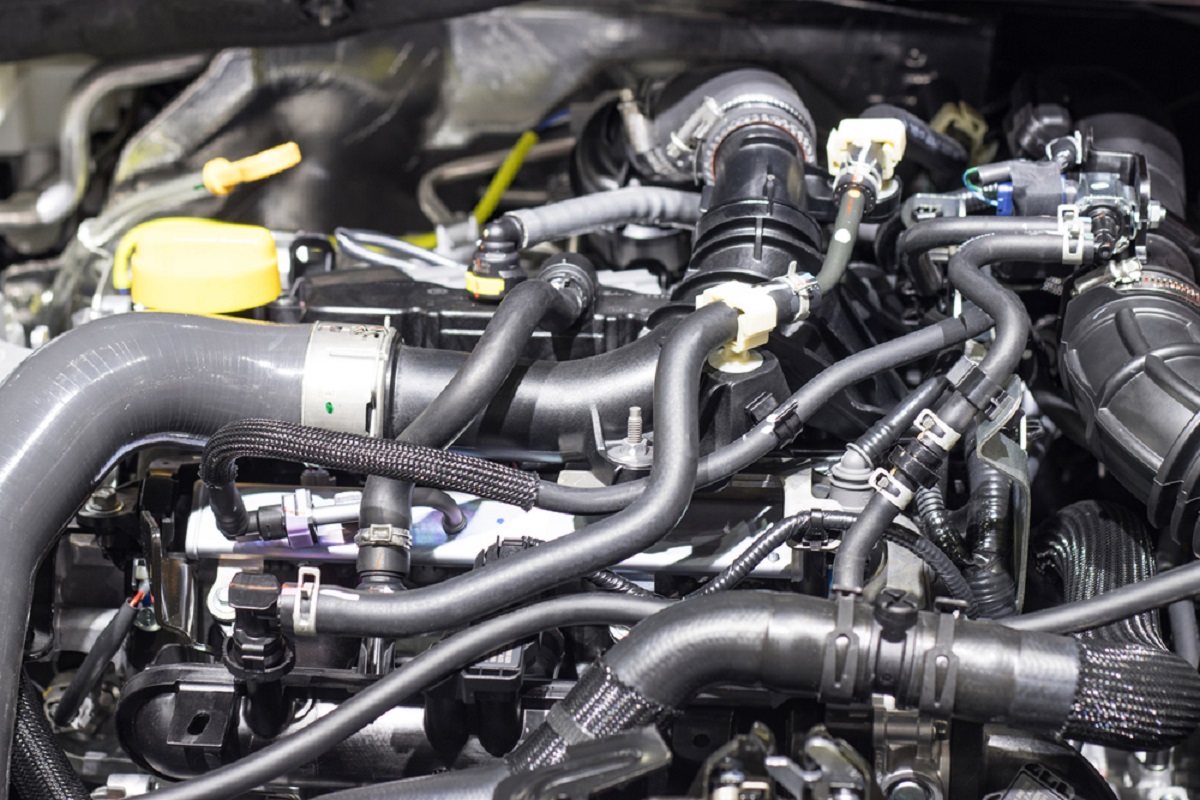
It’s essential to clean your engine in a well-ventilated area to ensure the cleaning products have a chance to work effectively. Without proper ventilation, chemicals may not evaporate or break down as efficiently. Additionally, cleaning in a confined space can expose you to harmful fumes from the products used.
Related: 12 Loudest Stock Car Horns You Can Buy
Overlooking the Engine’s Cooling System
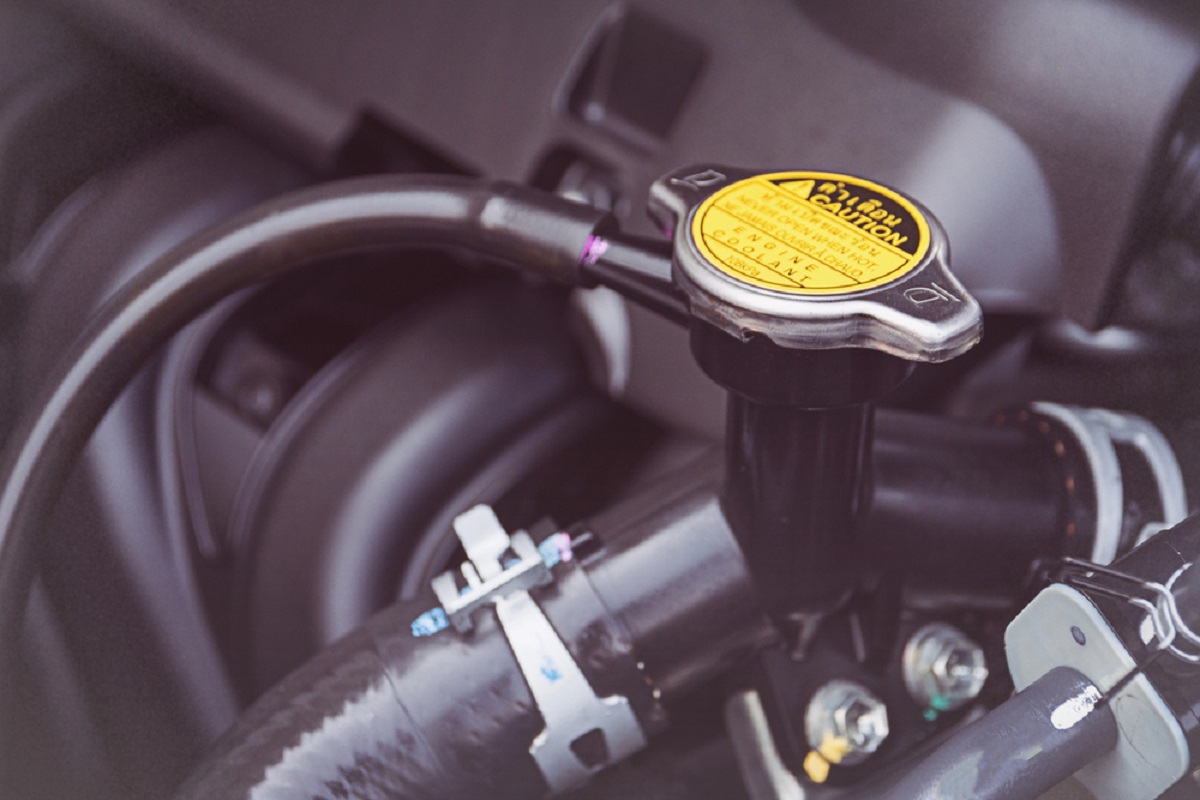
When cleaning your engine, it’s crucial not to neglect the cooling system components, as they play a major role in maintaining the engine’s temperature. Dirt and debris can accumulate on the radiator and hoses, potentially leading to cooling issues. Ensure these areas are cleaned properly to avoid overheating or damage.
Related: 13 Celebrity Car Restorations: Bringing Classics Back to Life
Using Household Cleaning Products

Many household cleaning products, such as dish soap or all-purpose cleaners, are not suitable for engine cleaning. These products can leave behind residues that attract more dirt and cause damage to the engine over time. Stick to cleaners made specifically for automotive engines to ensure the safety and longevity of your car.
Related: Your Motorcycle Maintenance Checklist Experts Swear By
Using Too Much Heat
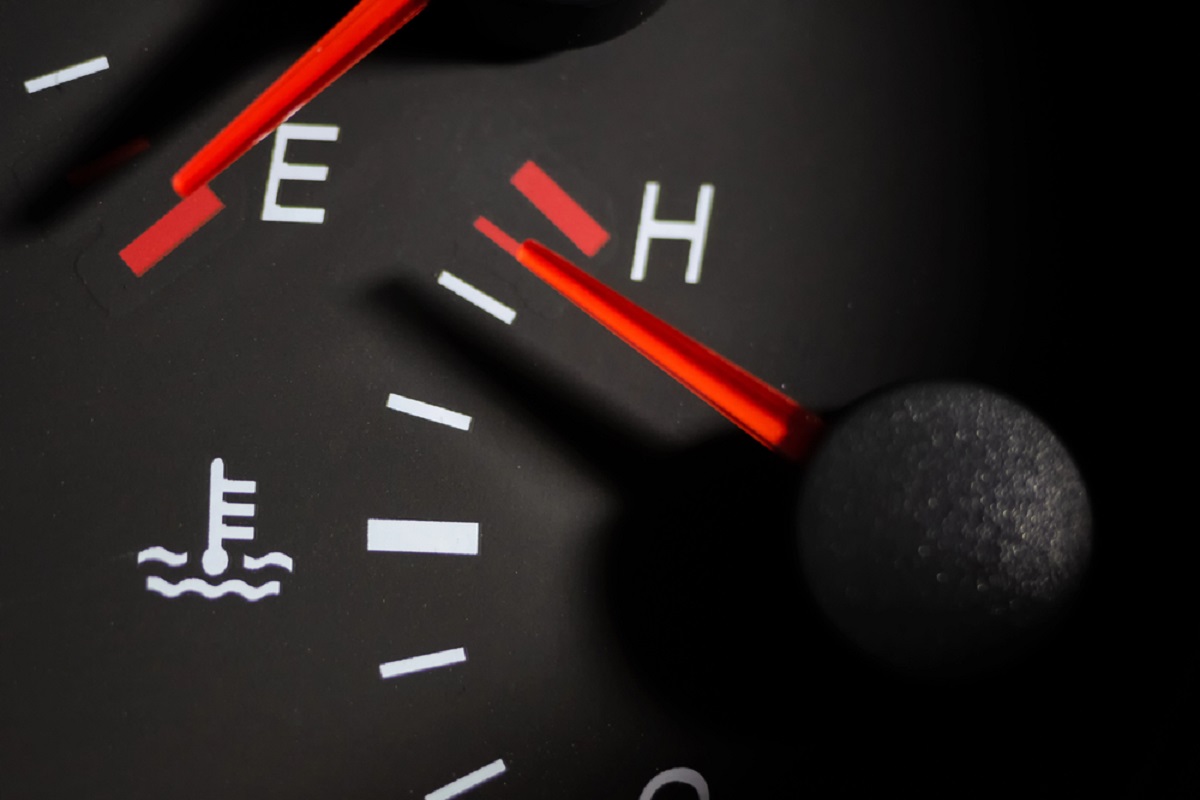
While it’s important to warm the engine slightly before cleaning, overheating can cause more problems. Using excessive heat to dry or clean the engine can lead to melted wires, cracked parts, or damage to rubber seals. Always avoid using excessive heat during the cleaning process to preserve the integrity of the engine components.
Related: 12 Genius Upgrades That Will Transform Your Car’s Performance Instantly
Not Following the Manufacturer’s Instructions
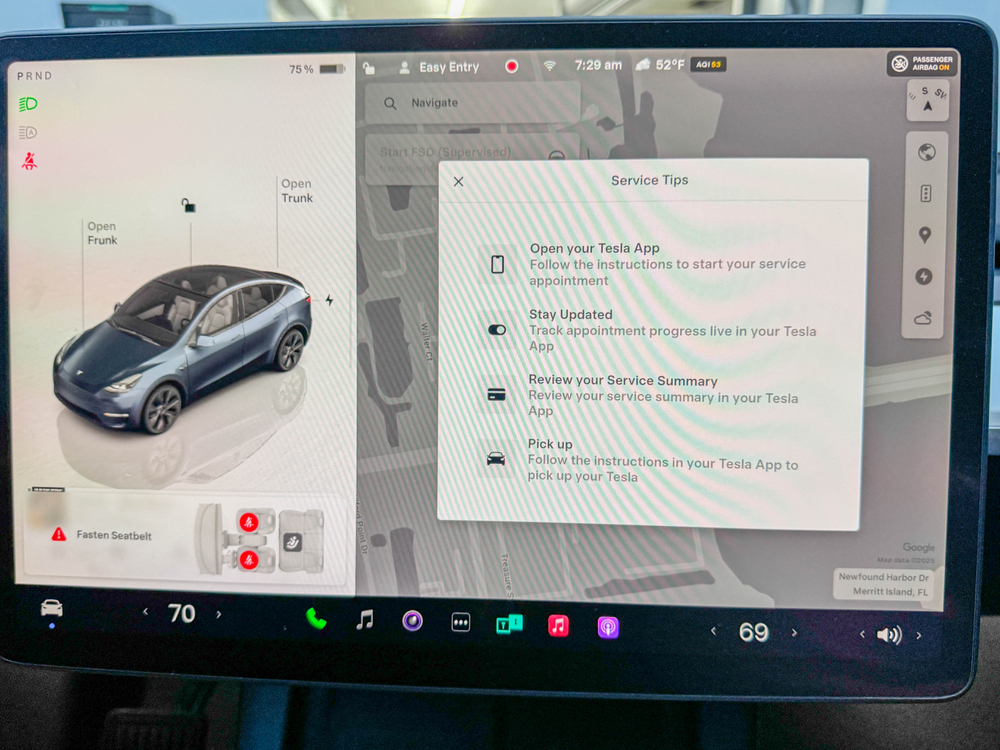
Every engine is different, and the manufacturer may provide specific guidelines on how to clean the engine properly. Ignoring these instructions can lead to improper cleaning methods that could harm the engine. Always read and follow the manufacturer’s recommendations to ensure you’re cleaning your engine safely.
Related: 15 Retro Rides That Made A Shocking Comeback With Insane Upgrades
Cleaning your engine can improve its performance, appearance, and longevity, but it’s vital to avoid making common mistakes. Failing to protect sensitive components, using the wrong products, or applying incorrect techniques can lead to costly damage. By following the proper procedures and being cautious with your approach, you can keep your engine running smoothly for years. Preventing these deadly errors will not only save you time and money but also ensure that your vehicle remains in optimal condition.
Disclaimer: This list is solely the author’s opinion based on research and publicly available information.
15 Insanely Complicated Cars That Mechanics Avoid
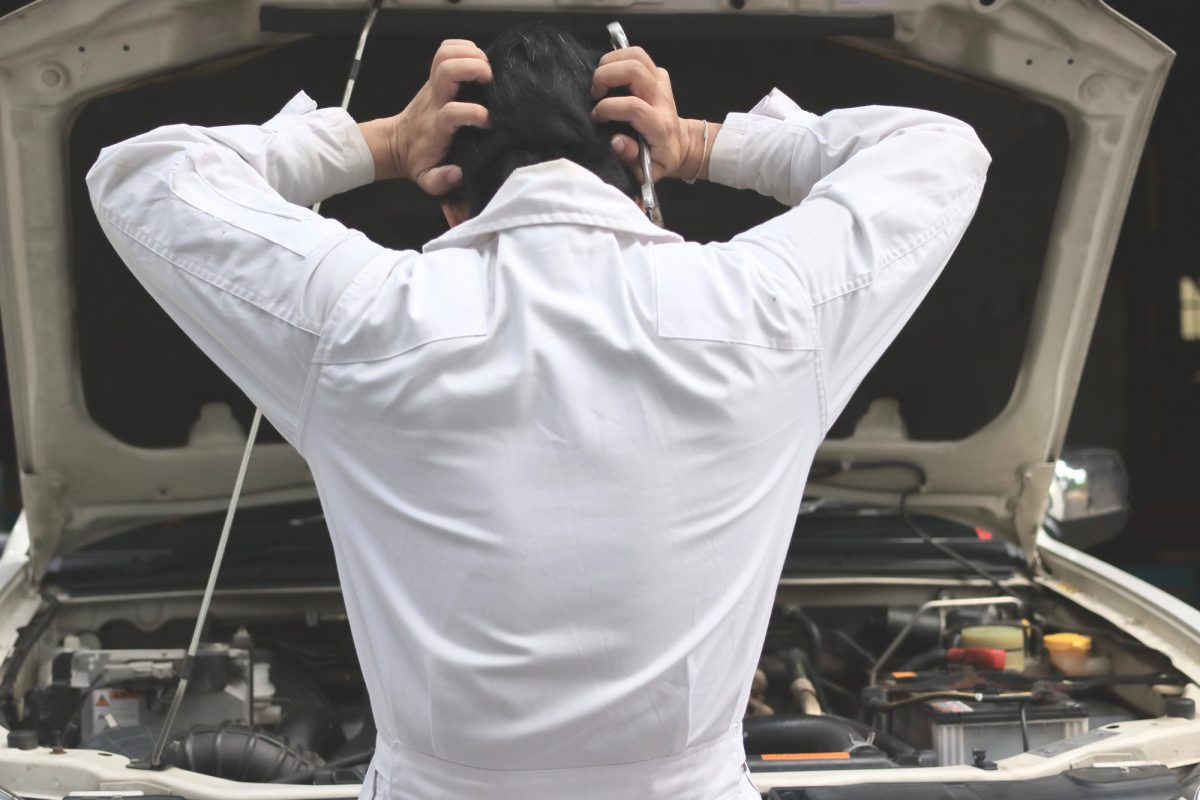
Some cars are known for their exceptional engineering, but that doesn’t always translate to easy maintenance. Certain models come with intricate technology, unusual designs, or parts that require specialized tools and knowledge, making mechanics think twice before working on them. These vehicles often lead to frustration, extended repair times, and sky-high service bills, making even the most experienced professionals avoid them.
Read it here: 15 Insanely Complicated Cars That Mechanics Avoid
12 Cars That Mechanics Buy For Their Own Use

When it comes to choosing a car, no one knows reliability, performance, and long term durability better than a professional mechanic. They’ve seen it all, the breakdowns, the costly repairs, and the engineering nightmares. So, when a mechanic decides to buy a car for themselves, they choose wisely. These 15 cars have earned the trust of experts because they are built to last, easy to maintain, and deliver outstanding performance.
Read it here: 12 Cars That Mechanics Buy For Their Own Use
14 Mid-Engine Sports Cars You Can Actually Afford In 2025

Mid-engine sports cars offer a thrilling blend of balance, agility, and performance, often reserved for high-end exotics. However, there are still plenty of affordable options for enthusiasts who crave that perfect weight distribution and razor-sharp handling without breaking the bank. Here are 14 mid-engine sports cars that remain within reach in 2025.
Read it here: 14 Mid-Engine Sports Cars You Can Actually Afford In 2025
